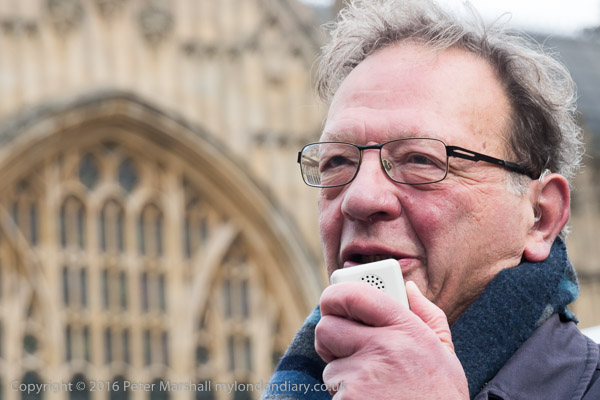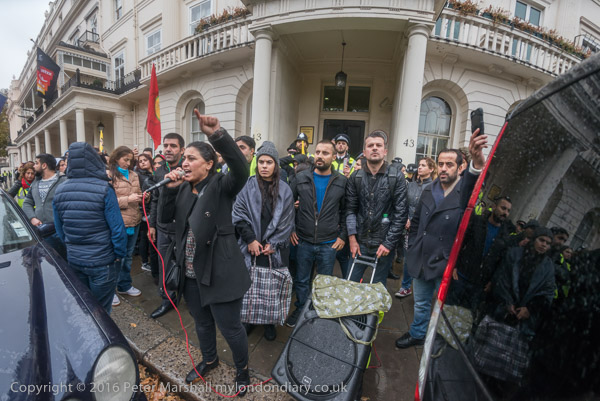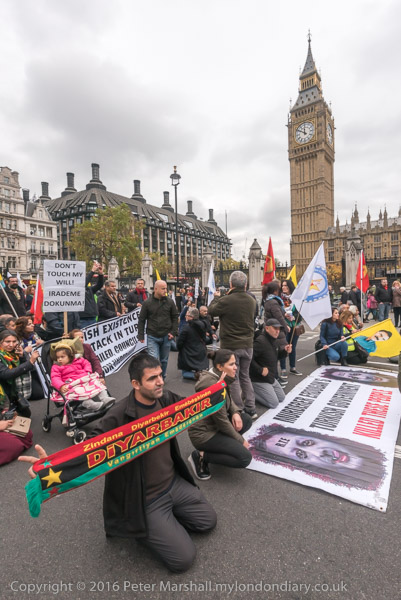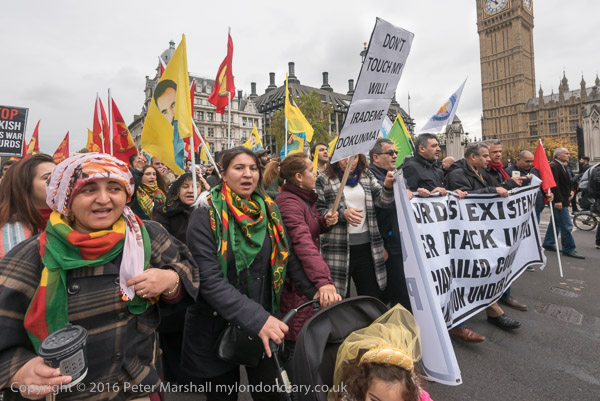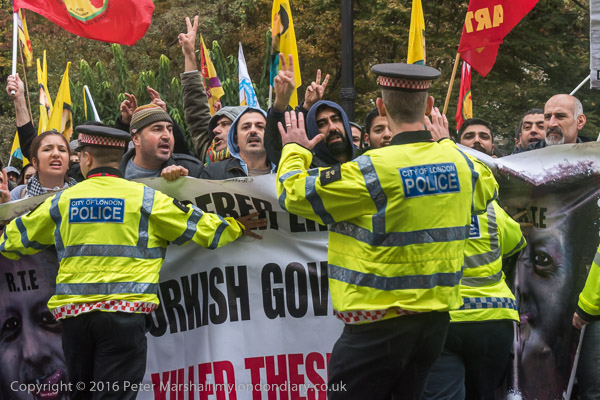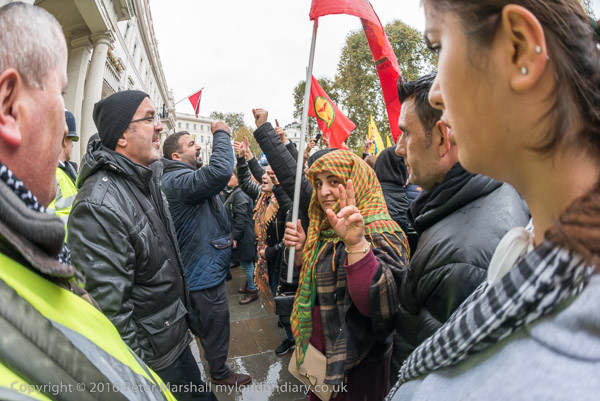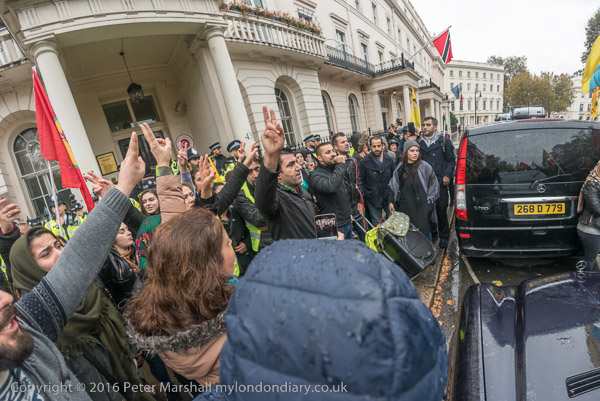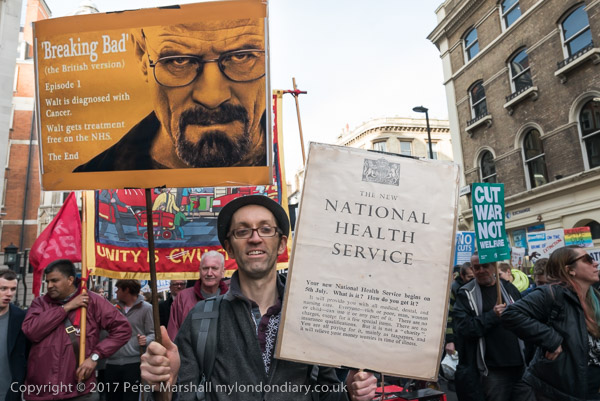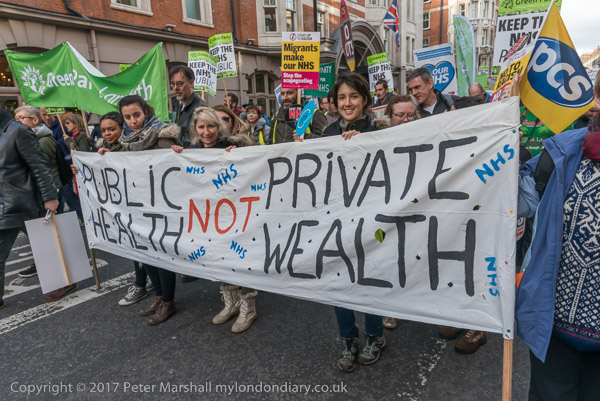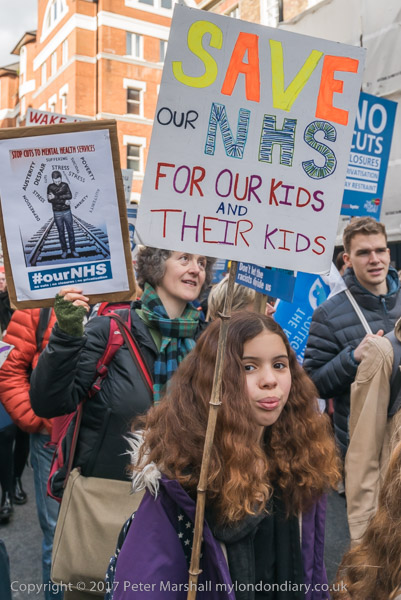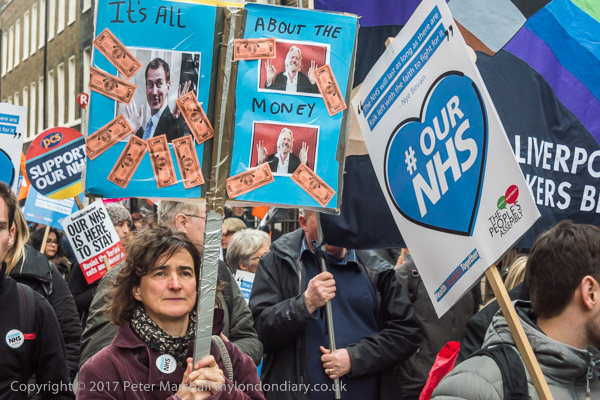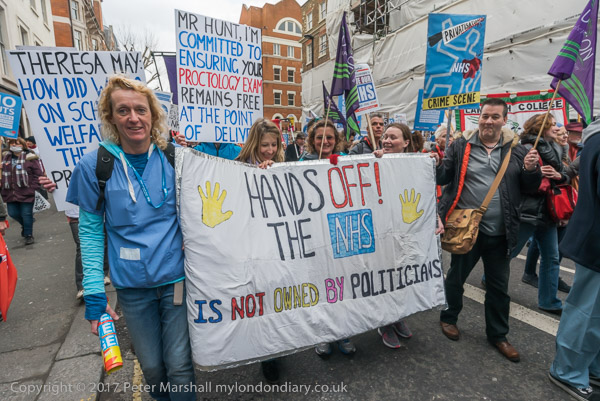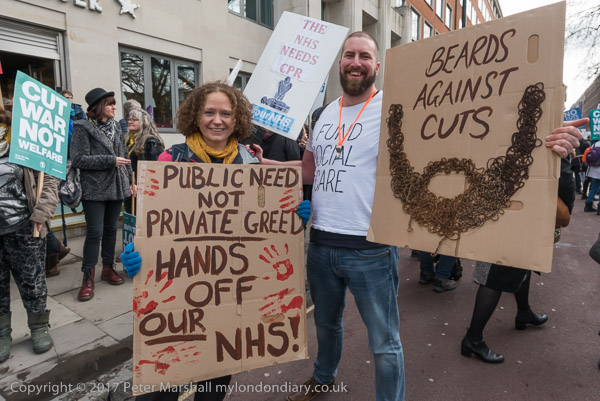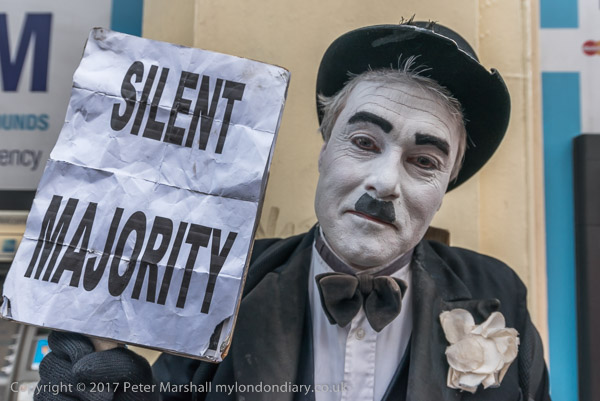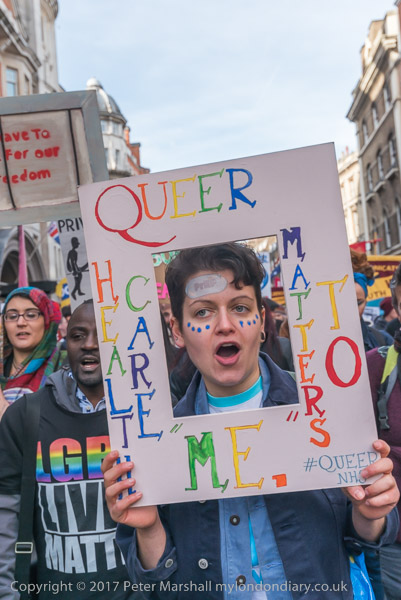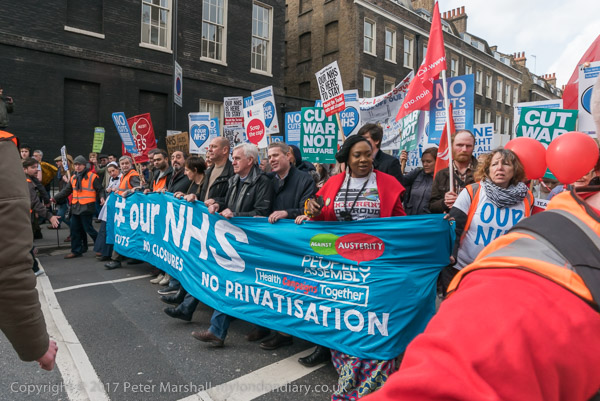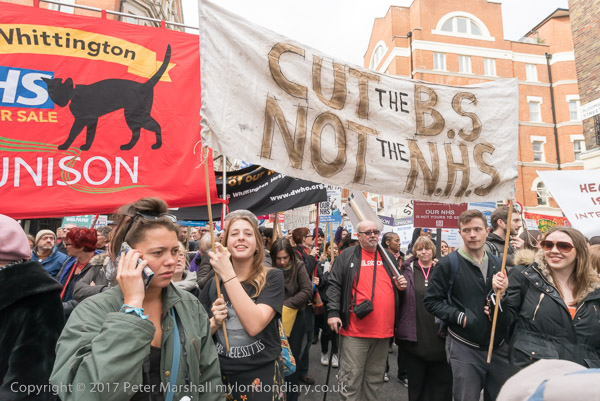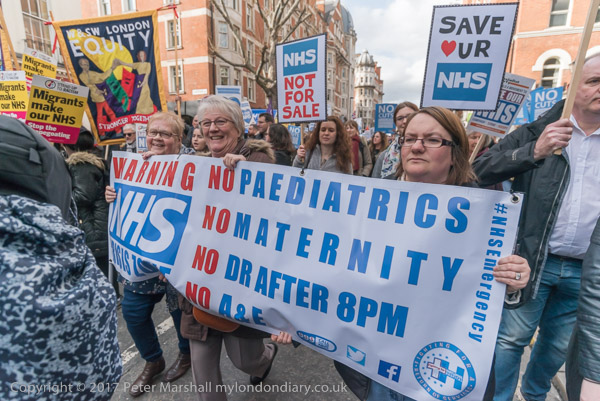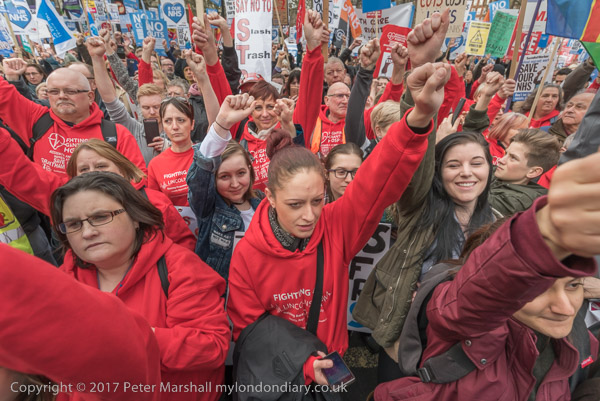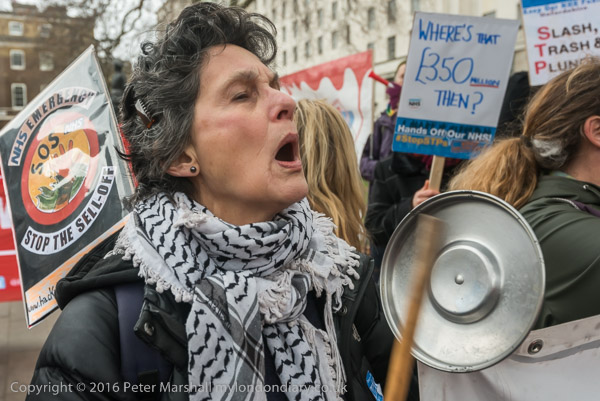
NHS campaigners came to Downing Street on Friday 23rd December 2016, the day that contracts were signed for 44 areas covering the whole of England to implement the government’s ‘Sustainability and Transformation Plans’ (STP).

Including many health professionals the campaigners saw these plans as the last nail in the coffin of the NHS, effectively handing over the NHS to private companies without any public engagement of consultation, ending a public service whose vision which has long been the envy of the world, signing the NHS over for private profit.
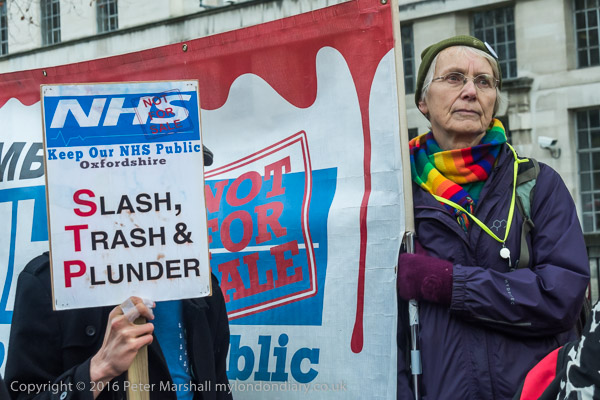
A series of speeches was interrupted every 15 minutes by three long and loud ‘howls of protest‘, timed to coincide with three social media ‘Thunderclaps’ across Facebook, Twitter & Tumblr by several hundreds unable to be there in person.
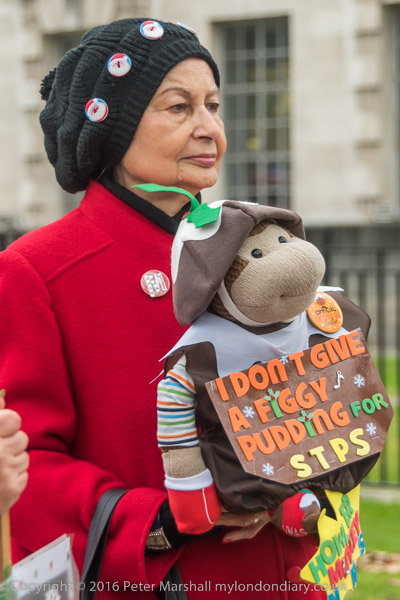
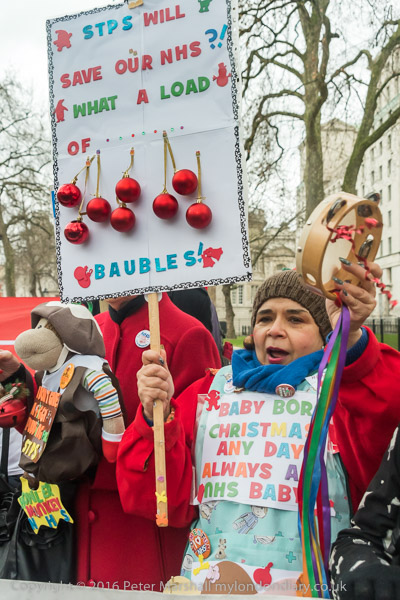
Among speakers were Paula Peters of DPAC, Ealing Councillor Aysha Raza, trainee nurse Anthony Johnson of the Bursary or Bust campaign, trainee mental health nurse Gina, a patient and campaigner and retired Paediatrician Tony O’Sullivan, Co-chair of Keep Our NHS Public.

At the end of the rally, a small group of those present, led by DPAC and a banner listing of few of those who had died because of government cuts marched down Whitehall holding up traffic for a final howl outside Parliament and a speech there by Paula Peters.
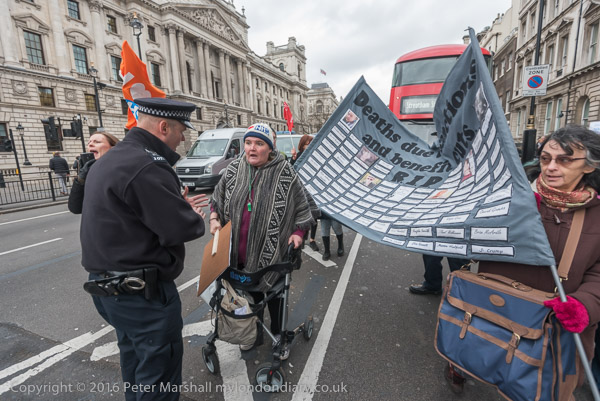
As they came to the end of Parliament Street police came to harass them, threatening them with arrest if they did not get onto the pavement. Like many such police interventions this only prolonged the traffic holdup as the protesters were about to cross the road to the wide pavement outside Parliament but were delayed by police arguing with them.
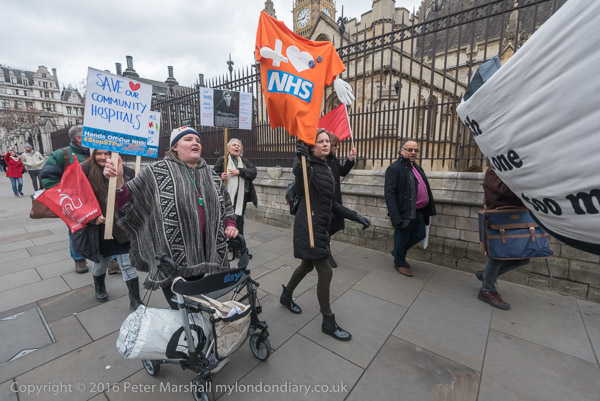
Sustainability and transformation plans were fortunately short-lived and soon morphed into ‘sustainability and transformation partnerships‘ which by 2018 were becoming known as ‘integrated care systems‘, and then were expected to evolve into ‘accountable care systems‘. It all reflected an increasing half-baked emphasis on managers and management changes which damaged the ability of the NHS to actually treat patients.
Many feel that government policies – under both Tories and Labour – have been designed to wreck the NHS so it can be replaced by an insurance-based system – with great profits for the mainly US-based healthcare companies who make large financial contributions to leading politicians and in which many also have a direct financial interest.
More pictures at Howls of protest for death of the NHS.
Flickr – Facebook – My London Diary – Hull Photos – Lea Valley – Paris
London’s Industrial Heritage – London Photos
All photographs on this page are copyright © Peter Marshall.
Contact me to buy prints or licence to reproduce.
